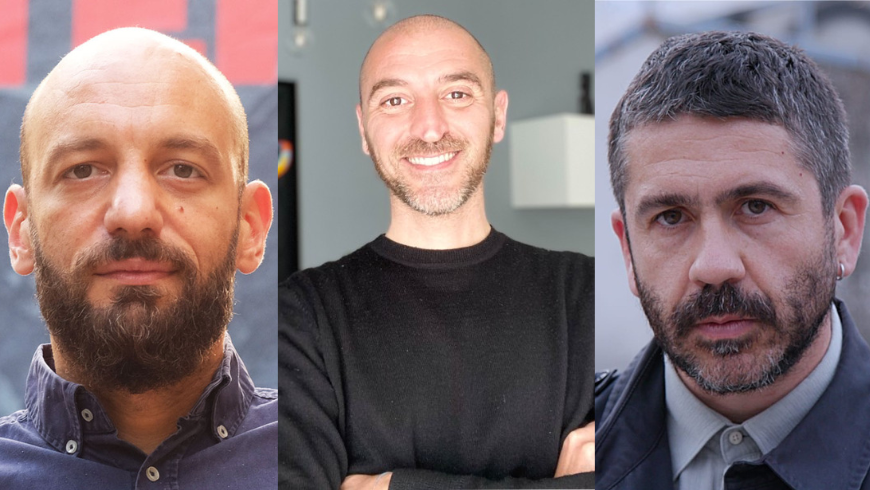Three reporters at Domani – Giovanni Tizian, Nello Trocchia, Stefano Vergine – are facing up to 9 years in prison. They are under investigation by Perugia Prosecutor’s Office for allegedly having requested and received confidential documents from a public official, and for allegedly breaching the secrecy of the investigation through the request and publication of information contained in those documents.
The investigation started on October 2022, after Domani published articles outlining a conflict of interest concerning Italy’s Defence Minister Guido Crosetto. Domani revealed that for years, before being appointed Minister, he was paid by the arms industry as an advisor. The Minister has never denied the information published. Yet, he filed a complaint to the Italian judicial authorities with the aim of identifying Domani’s alleged source.
Following its adoption by the European institutions, the European Media Freedom Act (EMFA) aims to strengthen the protection of journalistic sources and strictly regulate the possibility for the judiciary to investigate these sources, under the guidance of an independent judge, and only in the context of investigations into a limited number of crimes.
In a complete break with the spirit of the EMFA, the decision by the Perugia prosecutor’s office to prosecute Domani’s reporters to identify their sources risks criminalising journalism. What is happening to Domani has already been highlighted by the main journalists’ trade unions and by organizations such as Federazione Nazionale della Stampa Italiana, Media Freedom Rapid Response, European Centre for Press and Media Freedom, European Federation of Journalist, Free Press Unlimited, International Press Institute, ARTICLE 19 Europe and OBC Transeuropa.
Without the possibility of verifying pieces of news, and without sources leaking secret information, investigative journalism would be hugely limited. Likewise, the freedom of the press would be limited, to the detriment of the public’s right to be informed about news of public interest that political and economic power tries to hide.
We fear that the current investigation on Domani’s reporters represents an attempt to breach the confidentiality of journalistic sources, and to silence Domani’s investigative reporting on members of the current government.
It is not the first time that members of the current Italian government act against Domani and other Italian media: SLAPPs, claims for damages and intimidations are becoming more and more frequent in the country. With this call for support, we ask the Italian judicial and political authorities to respect the right to report, the freedom of the press and the public’s right to have independent media.
First signatories:
International organizations
Amnesty International Italia – Riccardo Noury, spokesperson
ARTICLE 19
Bulgarian Investigative Journalism Centre
Civic Initiatives (Serbia)
Coalition For Women In Journalism (CFWIJ)
Committee to Protect Journalists (CPJ)
Daphne Caruana Galizia Foundation
Deutsche Journalistinnen- und Journalisten-Union (dju) in ver.di
DİSK Basın-İş (Turkish Press and Printing Employees Union)
Dutch Association of Journalists (NVJ)
European Centre for Press & Media Freedom (ECMPF)
European Federation of Journalists (EFJ)
Federación de Asociaciones de Periodistas de España (FAPE)
Federazione Nazionale Stampa Italiana (FNSI)
Foundation Atelier for Community Transformation (ACT)
Free Press Unlimited (FPU)
GCD (The Turkish Association of Journalists)
Greenpeace Italia
Human Rights Center Ghent University – Dirk Voorhoof, professor emeritus, Freedom of
Expression
Index on Censorship
Independent Journalists’ Association of Serbia (IJAS)
International Federation of Journalists (IFJ)
International News Safety Institute (INSI)
International Press Institute (IPI)
Irish PEN / PEN na hÉireann (Catherine Dunne, chair, writer)
Justice for Journalists (JFJ)
Libera Informazione
OBC Transeuropa
Pištaljka (The Whistle)
PEN International
RECLAIM
Reporters Without Borders (RSF)
Peace Institute (Ljubljana)
Society of Journalists (Warsaw)
South East Europe Media Organisation (SEEMO)
Statewatch
The Good Lobby (Italia)
The Turkish Association of Journalists (GCD)
Trade Union of Croatian Journalist (TUCJ)
Media outlets
Are we Europe
Balkan Insight
Daraj – Alia Ibrahim, co-founder
Defapt.ro – Cătălin Prisăcariu, co-founder
Delfi Estonia – Urmo Soonvald, editor in chief
Disclose – Ariane Lavrilleux, reporter and press freedom defender
elDiario.es
European Investigative Collaborations (EIC) – Stefan Candea, co-founder and coordinator
Expresso – David Dinis, editor in chief
Gazeta Wyborcza
HVG
InfoLibre – Daniel Basteiro, editor in chief; Jesús Maraña, editorial director
Internazionale – Giovanni De Mauro, editor in chief
Investigate Europe – Alessia Cerantola, editorial director
IrpiMedia – Lorenzo Bagnoli, co-editor in chief
L’Espresso
Le Soir – Christophe Berti, editor in chief
Libération – Dov Alfon, editor in chief
Lighthouse Reports – Daniel Howden, founder and director
Magyar Hang – György Zsombor, editor in chief
Mediapart – Carine Fouteau, president and publishing editor
Nacional – Berislav Jelinic, editor in chief
Piazzapulita
Presadiretta – Riccardo Iacona and the news desk
Politiken – Amalie Kestler, editor in chief
Radio anch’io – Giorgio Zanchini
Report
Reporters United – Nikolas Leontopoulos, co-founder
Shomrim – Eyal Abrahamii, editor in chief
SourceMaterial – Leigh Baldwin, editor in chief
The Insider – Roman Dobrokhotov, editor in chief
TPI (The Post Internazionale)
VG – Gard Steiro, editor in chief
